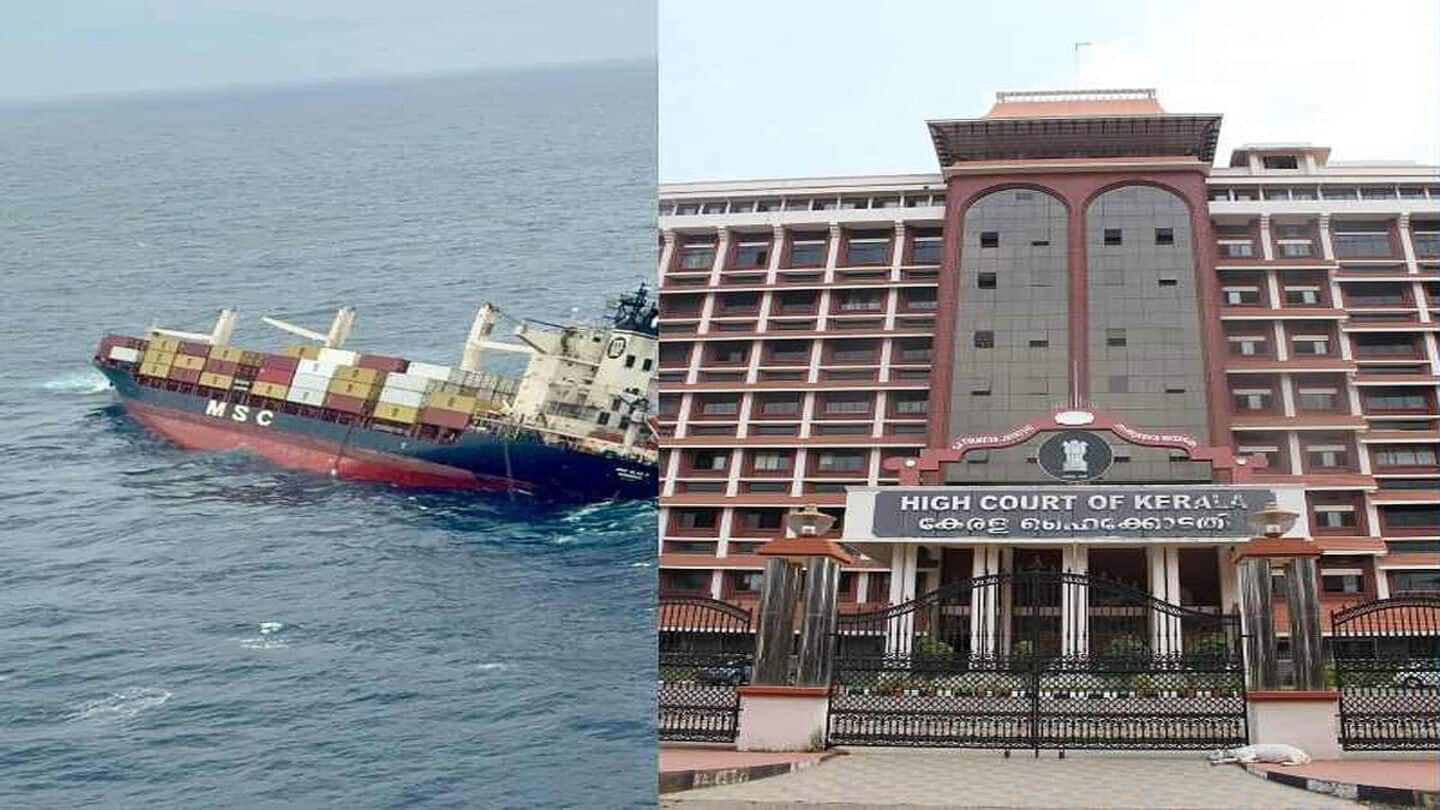
Why Kerala has 'arrested' a cargo ship
What's the story
Kerala has arrested the Liberian container ship MSC Akiteta II, which is currently within Indian territorial waters, after the Kerala High Court ordered its arrest on Monday. The order was issued to secure compensation for environmental damage caused by its sister ship, MSC Elsa III, which sank off Kerala's Alappuzha coast in May. The ship went down with 640 containers, including 13 with hazardous cargo and 12 containing calcium carbide, 84.44 MT of diesel, and 367.1 MT of furnace oil.
Damage assessment
Ecological impact from sinking of MSC Elsa III
The Kerala Environment Department had flagged an "enormous" ecological impact from the sinking of MSC Elsa III. Tiny plastic pellets were found on Thiruvananthapuram's beaches, posing a risk to marine ecosystems and humans. In June, three cashew-importing companies sought compensation from the Kerala High Court for losses due to the shipwreck. Following this, another sister vessel, MSC Manasa F, was briefly arrested but released after depositing ₹6 crore.
Court
Kerala government filed an admiralty suit
On Monday, the Kerala government filed an admiralty petition in the high court to recover ₹9,531 crores in marine claims for environmental and economic damage caused by the ship's sinking. It demanded the detention of MSC MV Akiteta II till the reparation was paid. Justice MA Abdul Hakhim then issued an interim order, allowing Vizhinjam Seaport to implement the warrant and make the arrest.
Maritime laws
Precedents for such arrests in India
The arrest of MSC Akiteta II is not the first in India. In 2020, a Bahamas-flagged vessel was arrested in Mumbai over unpaid port dues. Another ship was detained in Chennai in 2021 after an oil spill incident. India's maritime laws, including the Admiralty (Jurisdiction and Settlement of Maritime Claims) Act, 2017, allow courts to detain sister ships owned by the same entity for maritime incidents.
Legal provisions
Relevant laws
Section 4 of the Admiralty Act allows courts to hold sister ships liable if they have common ownership. The Merchant Shipping Act, 1958, and the Environment Protection Act, 1986, empower authorities to act against polluters in territorial waters. The National Green Tribunal (NGT) can also hear cases for environmental damages. The Arrest Convention of 1952 and the Arrest Convention of 1999 are considered by the courts to seek the arrest of the vessel.